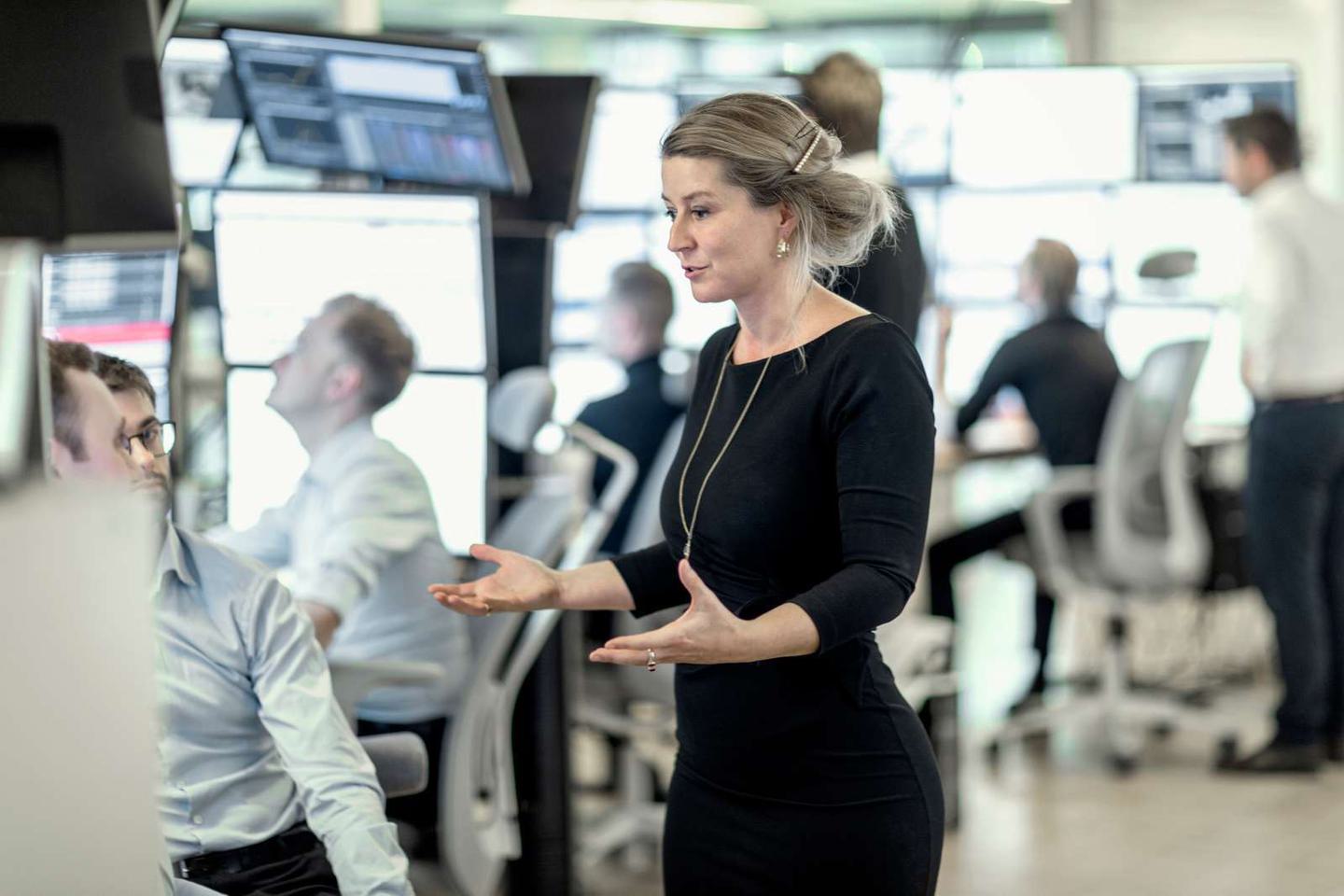Strong performance while bringing balance and liquidity to energy markets
In 2022, the people of Danske Commodities worked with determination and skill to navigate a European energy supply crisis. A crisis that firmly underlined the need for substantial investments in renewable energy and the vital role that trading companies play in connecting supply and demand through cross-border trading.

The first effects of the crisis emerged as early as Q4 2021, with supply shortages and substantial energy price increases. This was caused by the global economy bouncing back faster than expected from Covid-19 lockdowns, extreme weather events, political unrest, low gas storage levels and underperforming deliveries of natural gas from Russia to Europe.
There’s no doubt, however, that the main causes of the high energy prices in 2022 were supply concerns and real supply shortages in the wake of Russia’s invasion of Ukraine. Prior to the invasion, 35-40% of the natural gas consumed in Europe was imported from Russia, but Russian gas supplies came to a complete halt in 2022, causing an unprecedented energy supply shortage in Europe that was further exacerbated by high temperatures, drought and low wind-energy production during the summer.
Danske Commodities strongly condemns the invasion and the ensuing humanitarian crisis affecting millions of innocent people. On the morning of the invasion, we took immediate action and suspended all trading activities with Russian counterparties.
Financial robustness key as prices rose
As prices and volatility rose to historical levels, financial robustness became a key factor for energy market participants in terms of ensuring a functioning market for cross-border trading and ultimately helping to cushion the unprecedented price volatility.
Since becoming part of energy major Equinor in 2019, Danske Commodities has strengthened its financial position. In 2022, that position was further improved by a capital injection from Equinor of EUR 3.5 billion, which enabled us to continue our trading activities in high price and high volatility scenarios, thus providing much needed liquidity to the energy markets.
Staying active in the markets proved especially important during the peak of the energy supply crisis, as efficient energy markets curtail price spikes and help ensure that we make the most of the energy resources available by constantly moving energy from where there is a surplus to where it is needed most. This not only strengthens security of supply, but also absorbs the most extreme price shocks, thereby creating significant societal value.
Strong performance and strategic progress
By combining a robust financial position with the adaptability of our business model and the know-how of our people, we delivered EUR 2.2 billion in earnings before tax (EBT). This record result meant we paid EUR 439 million in tax, making Danske Commodities one of the biggest corporate tax contributors in Denmark.
2022 was also a year of progress on our strategic objectives for asset-backed trading and global expansion. We grew our portfolio of flexible and renewables assets by 25% and strengthened our systems platform, which resulted in the average number of daily trades increasing from 15,000 in 2021 to 25,000 in 2022. We also established offices in Singapore and São Paolo, moving one step closer to our long-term ambition of profitability across five continents, and we welcomed 165 new colleagues to the Danske Commodities team.
I am especially pleased to see how many people have chosen to work with us and utilise their skills to help find real solutions to push the energy transition forward. Together, we want to solve the challenges that arise as we move towards increasingly decentralised and intermittent energy production.
Paving the way for more renewables
At Danske Commodities, we are proud to play a central role in the energy transition by bringing renewables to the market at scale and providing the flexibility needed to meet energy demands through our portfolio of gas storages and dispatchable assets.
The energy supply crisis has made evident that Europe needs to break free from its dependence on imported natural gas. While Europe was able to partially mitigate the impact of the energy supply crisis by buying LNG on the global markets, this is not a sustainable, long-term solution due to increasing global demand. To meet the demand for energy and achieve climate targets, more investments are needed in renewable energy production, and market participants like Danske Commodities have an important role to play in making these investments viable through trading, optimisation and balancing.
At Danske Commodities, we are proud to play a central role in the energy transition by bringing renewables to the market at scale and providing the flexibility needed to meet energy demands
Outlook: prices decline, underlying challenges remain
By the end of 2022, prices had returned to pre-invasion levels. High prices throughout the year and a relatively mild winter led to a considerable drop in demand for natural gas in Europe. At the same time, greater inflows of LNG from global markets into Europe substituted some of the natural gas previously imported from Russia. Together, these factors remedied the immediate supply issues, causing prices to drop, and we expect energy prices and volatility to remain at lower levels going forward compared to 2022. All things considered, we expect earnings in 2023 to return to a level closer to our financial results in 2021.
Looking further ahead, we expect the continued build-out of renewables will prompt an increased need for balancing on a global scale, and here Danske Commodities is well-positioned to capture value and deliver an important part of the solution for tomorrow’s energy systems.